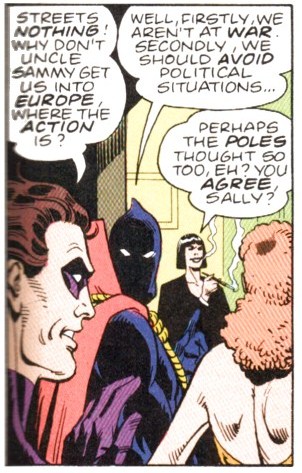I just started the TV series the other night, and got two episodes in. I'd been meaning to watch it since it came out, but I finally pulled it up and I'm wondering why I slept on it so long. Remains to be seen how things pan out, but so far I'm really intrigued. On the one hand, I keep looking for parallels to the original comic, but also keep trying to pull myself back and let it do its thing as a new work. I have theories about Horse-Riding Man - one quickly formed, one that may have replaced it in episode 2 - and one about Wheelchair Man.
It strikes me as a very politically odd show so far. I'm definitely having a kneejerk reaction against the whole angle it appears to take so far where Police are innocent victims that need to be protected and are put upon by unfair regulations, but it also wears very strong racial politics on its sleeve, and the original comic was a critique of vigilantism and fascism, so I'm withholding judgment until I see how more of it plays out.
All the mask imagery is coming across very differently in the age of COVID though, I can tell you that.
It strikes me as a very politically odd show so far. I'm definitely having a kneejerk reaction against the whole angle it appears to take so far where Police are innocent victims that need to be protected and are put upon by unfair regulations, but it also wears very strong racial politics on its sleeve, and the original comic was a critique of vigilantism and fascism, so I'm withholding judgment until I see how more of it plays out.
All the mask imagery is coming across very differently in the age of COVID though, I can tell you that.

